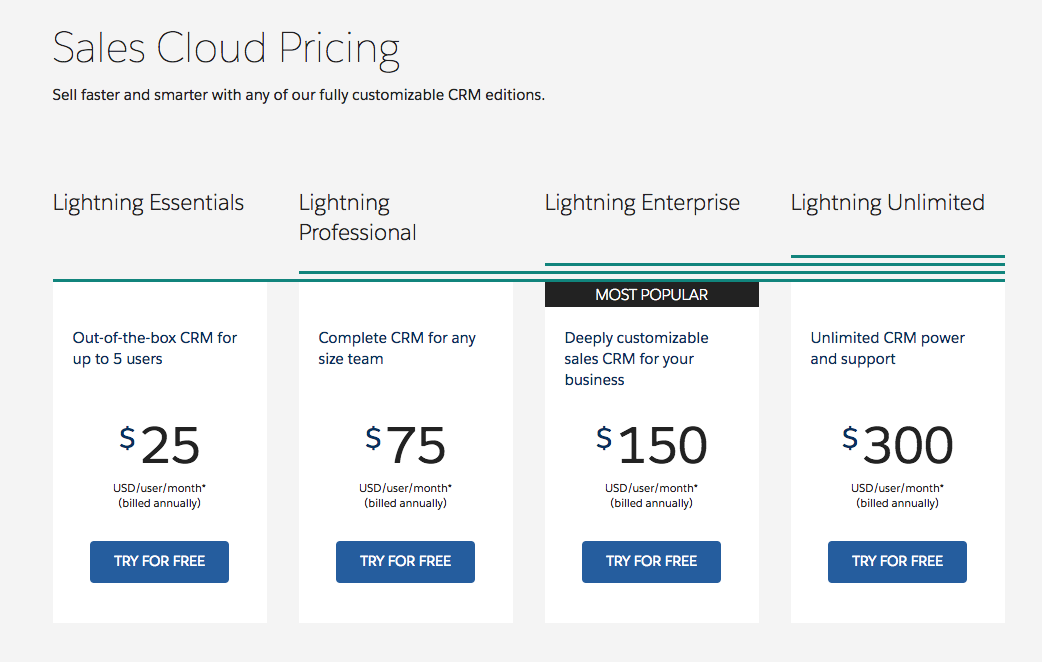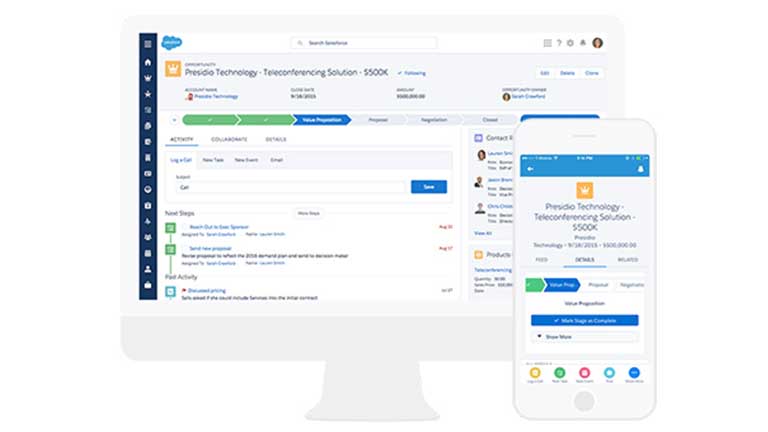SALES OPERATIONS PLAN
Sales Summit: The Future-Proof Sales Force
No corporate function is changing as quickly, or dramatically, as the sales organisation. Adapting to emerging models of buying and selling, sales organisations are retooling investments, recasting selling messages, and reframing the value their sellers bring to market. These decisions - often made quickly - can alter growth prospects for years to come. Which choices will best position firms for future success?
This panel session examines the most critical decisions facing sales leadership now and in the future - These include cultivating emerging selling competencies, fostering a learning sales organisation, investing in first-line managers, and leveraging new performance management paradigms.
Our panel, moderated by Bob Kelly, Chairman at Sales Management Association includes Donal Daly, CEO at The TAS Group, Andrea Miller, VP Commercial Sales at Salesforce, Dan Perry, Principal at Sales Benchmark Index and Mike Derezin, VP Sales Solutions at LinkedIn.
Be Prepared for the Future of Sales: Sales Competencies for the New Millennium
The Sales Rep Will Be a Trusted Advisor: Stay Focused. Create Urgency. Adapt to Change.
Staying focused, creating urgency, and adapting to changing environments are three core competencies that every sales rep needs to develop, says Andrea Miller of Salesforce. Buyers have and will continue to buy based on trust, says Miller. Building that trust in a short period of time, however, will become more critical as buyers are bombarded with competing information from many sources.
Sellers in the future will be seen as problem solvers who help their customers solve the problems that they can’t. Sellers need to become more knowledgeable and agile in providing solutions to those problems. Customers who make bad decisions about what to buy are typically hurt far more than a seller who loses a sale. Once this is understood by the seller they can transform into a trusted advisor with a customer centric approach to problem solving. This will engender trust in the seller and lead to a longer term relationship than was previously possible. Sellers reputations in the future will drive customers to seek them out. Who you are becomes more important as customers start buying you as a trusted advisor rather than the product that you are selling. How you portray yourself online should show who you are and your focus on what matters to the customer.
Stay focused. The new landscape of sales is distracting. Because we are bombarded every day with mountains of information, it is easy to lose sight of what is important. The ability to stay focused on the things that really matter will be even more crucial in the future. How sales reps choose to spend time will determine performance. Customer centricity is key. Instead of focusing on cold calling and hard selling, successful sales reps will see their role as a guide and resource for the customer. A key to future success is to know the customer. Using insights from social media and recording notes about the customer assists sales reps in focusing on the customer’s needs.
Staying focused also means that sales reps must be careful about their own online presence. Just as sales reps can research customers, customers likewise can research the sales rep. Online presence will go a long way to making or breaking a deal. It’s advisable for sales reps to structure their LinkedIn profiles with customer centricity in mind. Instead of using LinkedIn to list skills employers want, reps should list strengths that will help customers as they make buying decisions. But it’s not just professional skills that will be scrutinized, says Miller. What we chose to do on our “own” time can make the difference between being a trusted advisor or merely a sales rep.
Create urgency. Creating urgency for a customer without pressuring them is art. Artistic sellers will be able to create a sense of urgency based on an intimate knowledge of the customers needs. Sellers in the future will need to know more about the customer than they ever have in the past so they can provide the value needed at the right time. Again, social media plays a large role in understanding the customer.
Donal Daly of the TAS group explains a sobering fact for future buying: “The impact on a customer of a bad buying decision is typically greater than the impact on a salesperson of a lost deal.” When buyers realise the gravity of their decisions, the new salesperson--the trusted advisor--becomes even more valuable in the buying process. The role of sales advisors, then, is in value creation, says Daly.
The biggest competition sellers will encounter isn’t the actual competition, it’s the customer deciding to do nothing. Through value creation, the sellers of the future can focus on what problems the customer has and guide them to finding the right solution while showing them that waiting or choosing to do nothing is costly.
Adapt to change. The keyword of sale’s future is change. Adapting is an important key to success in a changing environment. New tools, new ideas, better information and statistical insights will become available for sales operations. Adapting tried and true sales techniques of the past to improve performance can have a big impact. Though adaptation is important, it is also important to stay focused. Sharing our adaptations throughout our organisations and discussing them at all levels can be a game changer.
Social Selling Is the Way of the Future and the Sales Territory Plan Will Be Increasingly Social
Dan Perry with Benchmark Index explains that the sellers of the future will need to have selling competencies in social branding, social reach, social prospecting, and buyer process map adherence.
Mike Derezin of LinkedIn agrees the new sellers will need to do their jobs differently. He explains they will need to be “mini marketers,” agile learners, and social sellers. As mini marketers, these front line sellers will need to be driven by CRM data to continually find the best approach. Good systems and sales ops teams will help give sellers feedback on the experience of the entire sales team. This feedback, says Derezin, allows sellers to learn faster and be more agile in their approach. Learning how to learn will be crucial, says Derezin. Tools and systems can be customised to accommodate changing customer needs.
With an increasingly mobile, tech driven society it is no surprise that many of the key competencies of a future sales rep revolve around social selling. Derezin explains that social selling can be broken down into measurable competencies:
- Social Branding: How well people know you;
- Social Reach: How many people you can reach across social media;
- Social Prospecting: Searching the web for potential prospects; and
- Socially generated warm introductions: Being where your customers are so your customers will know you before you are introduced.
These measures are increasingly important for millennials, who are the customers and sales force of today and the future. LinkedIn helps teach social selling by measuring four components of social selling and provides a number called the Social Selling Index which allows sellers to measure their social efforts and see where they can improve. The Social Selling Index encourages four measures: Establishing your professional brand, finding the right people, engaging with insights, and building relationships. Warm introductions will be key, says Derezin, who explains the National Do Not Call Registry has almost as many names as households in the U.S. Building relationships and making connections is the new way of selling.
The trend toward social selling will also change the sales territory plan of companies. Instead of assigning teams by geography, sales territories may be assigned to sales reps based on their social proximity to the customer. Salesforce already has functionality in assigning territories as new customers are entered into the CRM system. When the sales territory plan includes assigning reps based on high social proximity indexes, win rates double, says Derezin.
Sales Managers Will Become Coaches
In addition to the changes in the role of the sales rep/sales advisor, sales managers’ roles will also change. The fast pace of change can feel disorienting to sellers and managers alike as familiar ground shifts below their feet. Amid the change, managers and their teams need to be grounded by the key metrics that drive results. Individual coaching goes a long way to helping front line sellers.
Sales manager competencies will change. “The traditional sales manager does not have a role in the future,” says Donal Daly. The traditional sales manager, explains Daly, will need to transform into a sales leader who models the role and coaches for better outcomes. The challenge for the rest of the company will be not to corrupt the front line sales leader with meetings, data, and analytics. Instead, sales manager and leaders need to spend time where it matters most: With their people.
Coaching, says Daly should focus on the aspects of selling that the technology can’t. Salesforce CRM systems show the seller where deals are along the sales pipeline and suggest next steps. Sales coaching should involve teaching sales reps to listen to the needs of their customers and teaching them to understand how to help the customer on their buying journey. A crucial sales manager competency will be to help their individual sales advisors gain insight. By asking them what they learned, sales managers can teach their sales professionals to continually learn about value creation and customer centricity.
Sales manager competencies will include strong education, coaching and onboarding skills. For future sales leader to be successful, they will need a sales ops and enablement team that back them up with systems and tools that free up the leader to focus on people and not on data.
Sales Operations and Sales Enablement WIll Be Critical
Sales operations will be relied upon to provide the right information at the right time in a way that can be quickly utilised to provide real value. There isn’t a deficit of data, says Daly, there is a shortage of insight. Daly explains that the focus of sales operations should be on only on 4 key metrics:
- Number of opportunities
- Average sale size
- Win rate
- Sales cycle
“Getting all the data in Salesforce is critical. Integrating systems with Salesforce can increase velocity and execution as people have access to all the information,” explains Perry. Salesforce analytics and dashboard make data readily available across the company. As sales ops and sales enablement take that information to make data-driven decisions, companies can make crucial course corrections.
A broader skillset will be increasingly valuable across companies, says Derezin. Sales managers and sales leaders will need to look at the bigger picture and become involved in sales operations and sales enablement. Since finding warm leads is important, explains Derezin, you’ll begin to see CEOs and CFOs leveraging their social network.
The future of sales is bright. As sales reps become trusted advisors and sales managers turn to coaching, data-driven companies will realise their future-proof sales departments can face any changes the future holds.




